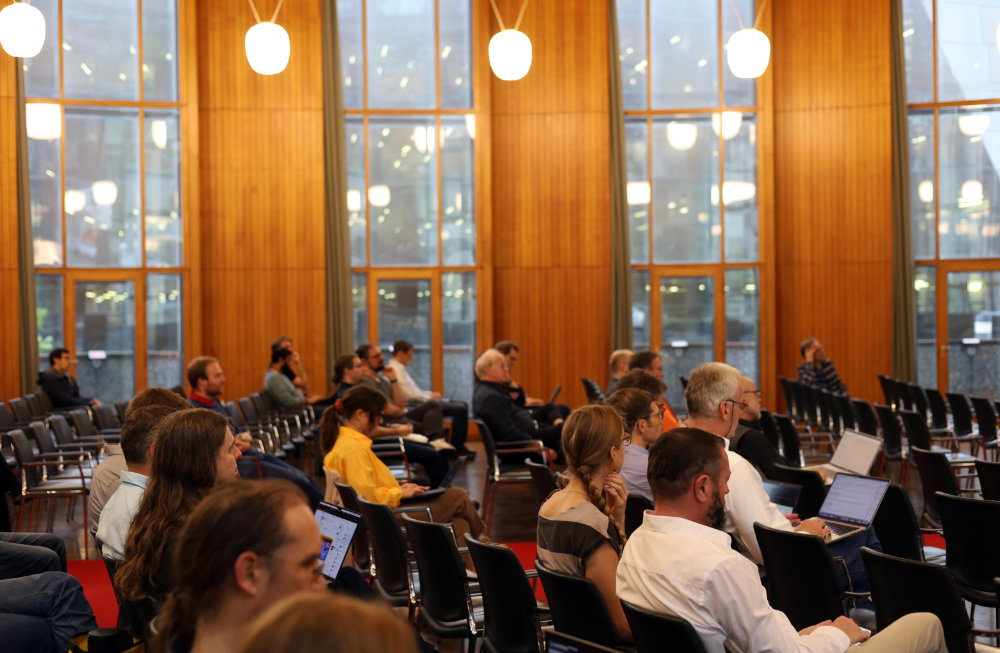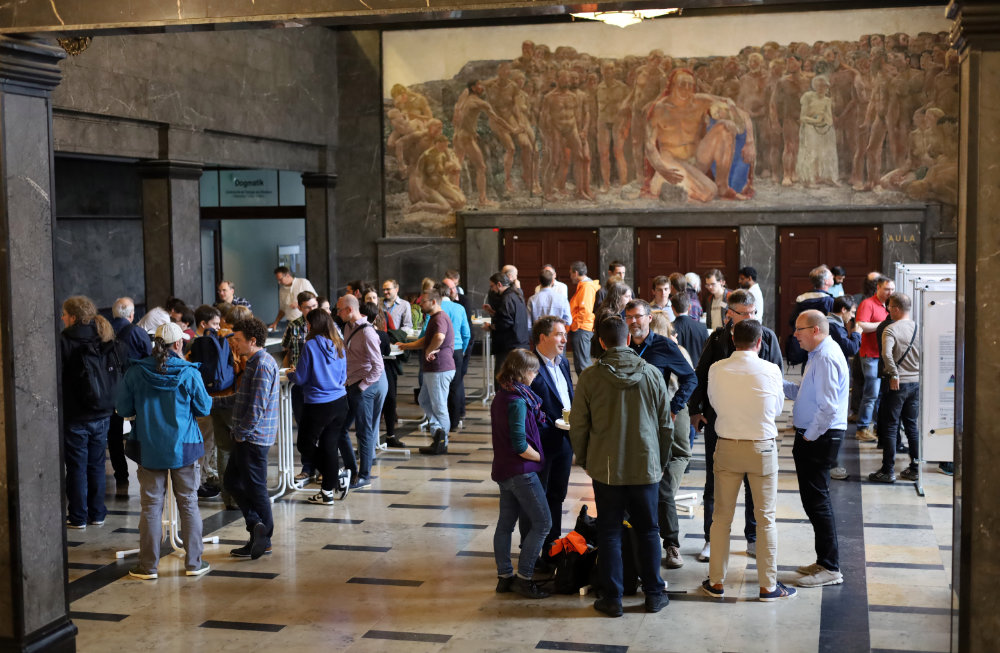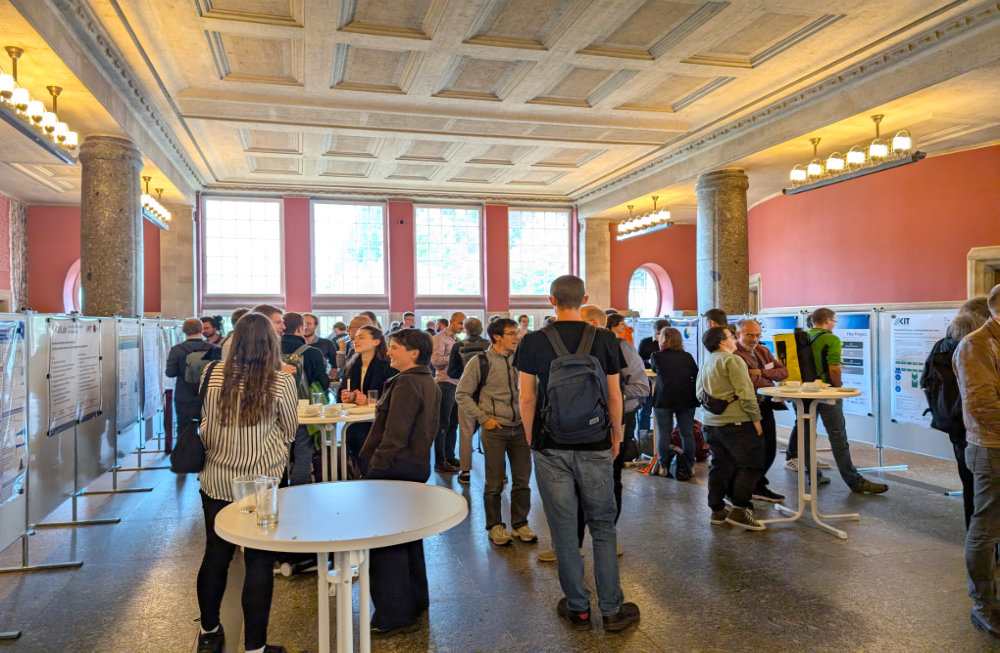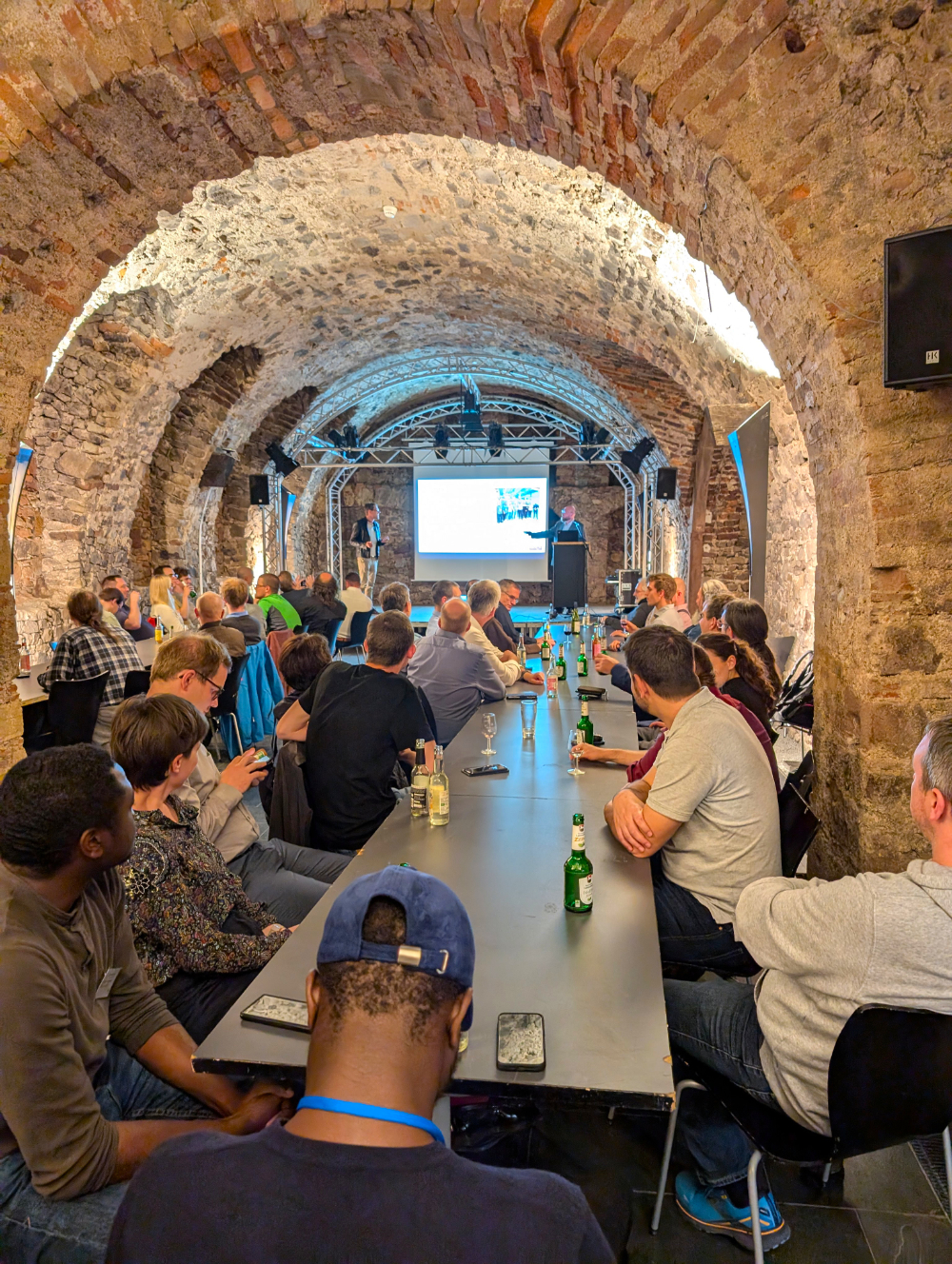Flashback: 10th Symposium 2024

The 10th bwHPC Symposium, the premier event for High Performance Computing (HPC) in Baden-Württemberg, was hosted at the University of Freiburg on September 25 and 26, 2024. The symposium brought together more than 80 experts, researchers, and enthusiasts to explore the latest advancements and innovations in high-performance computing.
The two-day symposium commenced on Wednesday, September 25, 2024, featuring a diverse program of 23 scientific presentations, workshops and tutorials led by top experts in the field. Highlights of the first day included an introductory HPC tutorial and a workshop on scientific programming with Python using Jupyter notebooks.
In the evening, attendees enjoyed an enlightening lecture titled “Keep calm and carry on - Cancer Research in Turbulent Times” by Marek Dynowski from the Cancer Research UK Manchester Institute at the Peterhofkeller, followed by a conference dinner and networking session.
The second day of the symposium commenced with a keynote by Joachim Ankerhold from the University of Ulm on “High Performance and Quantum Computing.” The day's agenda included scientific presentations, poster sessions, the inauguration of the bwForCluster NEMO2 and concluded with a panel discussion and the presentation of poster and paper awards.
The symposium was free of charge and open to researchers from all scientific fields.
Some more impression from 10th Symposium 2024:
Two main topics stood out at the 10th Symposium: the convergence of HPC power with larger user groups and the importance of Green IT. Among the notable presentations were:
- Galaxy goes HPC (Björn Grüning).
showcasing how the open-source platform Galaxy leverages HPC power for data-intensive biomedical research. For more information, visit usegalaxy.org.
- KI-Morph - User-friendly large-scale image analysis & AI on bwHPC systems (Alexander Zeilmann).
focusing on efficient processing of X-ray-generated 3D tomographic images to empower researchers with tools that enhance scientific insights. KI-Morph was also the recipient of our Poster Award. Visit ki-morph.de for an impressive demo.
The Symposium also featured discussions on Green IT, including presentations on the necessity of efficient and sustainable IT in research environments, energy efficiency analysis of server components, and promoting sustainability in university settings and cooperative services. The presentations in detail were
- Why efficient IT is also necessary (costs) and mandatory (EnEfG/RZReg) in the research environment (Peter Radgen)
- Thermographic and Energy Efficiency Analysis of Server Components under Variable Load Conditions (Benjamin Ott et al.)
- Green IT in the university environment: promoting sustainability through transparency (Lena Ritzinger)
- GreenIT in cooperative services (Jan Münchenberg)
- And the Panel discussion
Special thanks to:
- Special thanks were extended to participants who shared valuable insights, including presentations by David Eriksson: „Deepnetworks for reviving and accumulating experimental animal data: From Matlab to Python“ with the hint of code rewriting using ChatGPT as well as the presentation by Hanna-Friederike Poggemann: „Theoretical investigations on the catalytic pathway of unspecific peroxygenases in the context of biocatalysis“ with an alternate calculation solution for GROMACS + CP2K or ORCA. Ms. Poggemann was also the recipient of our Talk Award.
- Collaboration partners bwCloud and SDS∂hd as well as HLRS were acknowledged for their support at the Symposium 2024.
We hope all attendees enjoyed their time in Freiburg and look forward to welcoming them back for the next bwHPC Symposium in 2025.
Galerie





%2020.jpg)

